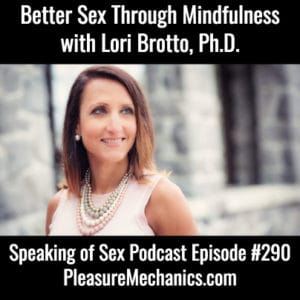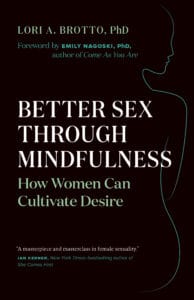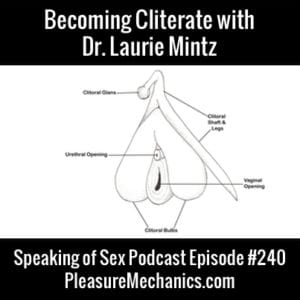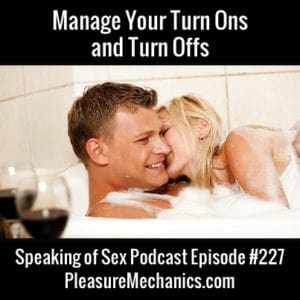Podcast: Play in new window | Download
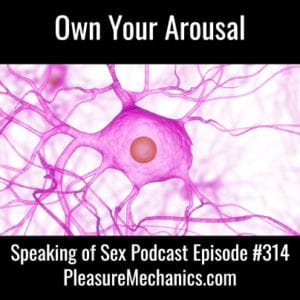
Arousal is not something that happens TO you – it is something that YOU generate. Your arousal is your own – so OWN IT!
In this episode we explore the nature of sexual arousal, and why we all need to stop waiting around hoping to get turned on! Arousal is an internal process that we can develop, learn how to pay attention to, and practice on purpose!
We offer you a three step process for owning your arousal. First, you learn how to pay attention to arousal using the super power of interoception. Then, you map how your arousal system works – what arouses you and what happens when you get aroused? Third, you learn how to cultivate arousal and then put it to use as fuel for your life and creative purpose! But for all of us, this magical process starts by learning how to first pay attention to arousal and then feel less shame and judgment about that arousal. These are the skills we work on in the Mindful Sex course and throughout our work and relationships – how can we get rid of the sexual shame and fear so we can cultivate and use sexual arousal as the clean burning fuel it can be?
Thanks to our sponsor for this episode, CloneAWilly.com – where you can find DIY kits to make a beautiful silicone replica of your favorite genitals. Use the code PLEASURE for 20% off your entire order!
Resources mentioned in this episode:

